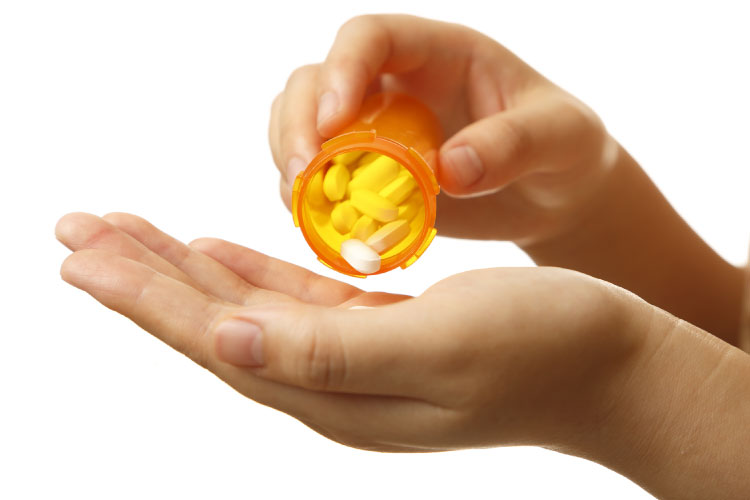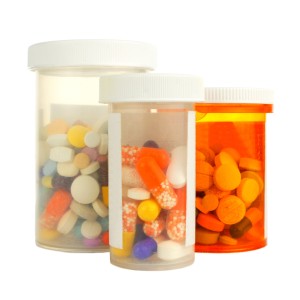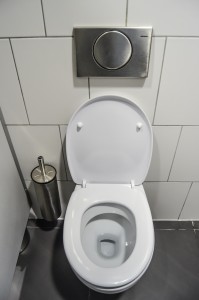
Contributor: Azure Acres clinical team member Ryan Poling, M.A.
Many people understand the need to be careful when disposing of certain items: car tires, batteries, engine oil, and the like. Care is required when getting rid of these items because they are potentially toxic or harmful if not handled correctly. While many people do not immediately think of them as such, prescription medications also fall into this same category of items. It is important to know how to properly dispose of unused prescription drugs.
With a glance in most people’s medicine cabinets, one will likely find a number of nearly-empty medicine bottles. These medicines may range from painkillers prescribed after an injury to expired psychiatric medications to old pills left over after a change in dosage.
No matter the source, these medications require a person to be conscientious when disposing of them. While one’s initial impulse may be to throw the medications in the trash (which is appropriate at times, as discussed later in this article), certain medications require a bit of extra care when a person is through with them.
FDA Rules to Dispose of Unused Prescription Drugs
The U.S. Food and Drug Administration (FDA) has published a set of guidelines for disposing of prescription medications. Unsurprisingly, different medications require different methods of disposal. So how does one safely throw away old prescription drugs?
According to the FDA, it is important to dispose of unneeded medications sooner rather than later. The longer the medication stays in a person’s medicine cabinet, the greater the potential for it to cause harm to someone else through accidental ingestion or intentional misuse.
 Many communities provide medicine take-back programs whereby residents of those communities can call local agencies, such as police stations and waste management companies, and inquire about medication disposal options.
Many communities provide medicine take-back programs whereby residents of those communities can call local agencies, such as police stations and waste management companies, and inquire about medication disposal options.
For controlled medications and those with greater potential for abuse, individuals can contact the U.S. Drug Enforcement Agency (DEA) and inquire about collection sites.
These sites are locations registered with the DEA, commonly pharmacies and law enforcement facilities, that take unused medications and pass them along to authorities for proper disposal.
If a collection site is not available in an individual’s area, the FDA also provides guidelines for how to throw away medications in the trash or flush them down the toilet.
Before trashing or flushing medication, it is important to consider any local laws that may prohibit you from doing so.
In addition, it is important to follow any medication-specific guidelines one may have been given regarding proper disposal procedures. These guidelines, if present, are typically included in documentation one receives when picking up a prescription.
The process of disposing of unneeded medication is fairly simple. The FDA recommends mixing unneeded medications with an unappetizing substance such as dirt, kitty litter, or used coffee grounds to discourage accidental or intentional ingestion, while at the same time being careful not to crush capsules or tablets.
Then place this mixture in a sealed plastic bag and throw it away normally. Before throwing away prescription bottles, make sure to scratch off the label and remove any identifying information.
Some medications are simply too dangerous to throw away in the trash, so in these instances, the FDA recommends contacting your local collection site.
If working with a collection site is not feasible, then one’s best option is to flush the medications down the toilet or in the sink so they are out of reach of children, household pets, or others who may be at risk of harm from accidental or intentional ingestion.
The FDA has included a list of medications recommended for flushing on the website listed in the footnotes of this article.
 If you are struggling with a prescription drug addiction, the time immediately before treatment can be an excellent time to dispose of prescription medications so you can return from treatment having removed a potential source of temptation and lower the risk of relapse.
If you are struggling with a prescription drug addiction, the time immediately before treatment can be an excellent time to dispose of prescription medications so you can return from treatment having removed a potential source of temptation and lower the risk of relapse.
Should you wish to dispose of your extra prescription drugs, following FDA guidelines for disposal can protect you if you are later tempted to retrieve the drugs you threw away.
Prescription medications have tremendous potential to benefit those who use them, but they also must be disposed of carefully. By following the simple steps outlined in this article, it is possible to minimize the risk of harm to others once the medications have served their purpose.
About the Author:
“How to Properly Dispose of Unused Prescription Drugs” was written by Azure Acres clinical team member Ryan Poling, M.A. Ryan has experience working clinically with a wide range of populations and presenting concerns. He is a clinical psychology doctoral candidate and has also earned Master’s degrees in psychology and theology. He was an adjunct professor of psychology at Azusa Pacific University from 2012 to 2015.
Program Description:
Azure Acres is a comprehensive treatment center that helps adults ages 18 and older find healing from substance abuse and/or co-occurring mental health concerns. Azure Acres offers residential treatment, outpatient care, and detox services in Sacramento, California. Outpatient care is offered in Sacramento and Santa Rosa, California. With over 55 years of helping patients and their families find wellness, Azure Acres is a premier location for all recovery needs.
The opinions and views of our guest contributors are shared to provide a broad perspective of addictions. These are not necessarily the views of Addiction Hope, but an effort to offer a discussion of various issues by different concerned individuals.
We at Addiction Hope understand that addictions result from multiple physical, emotional, environmental, and genetic factors. If you or a loved one are suffering from an addiction, please know that there is hope for you, and seek immediate professional help.
Published on September 15, 2015
Reviewed and Updated by Jacquelyn Ekern, MS, LPC on January 4, 2021
Published on AddictionHope.com
